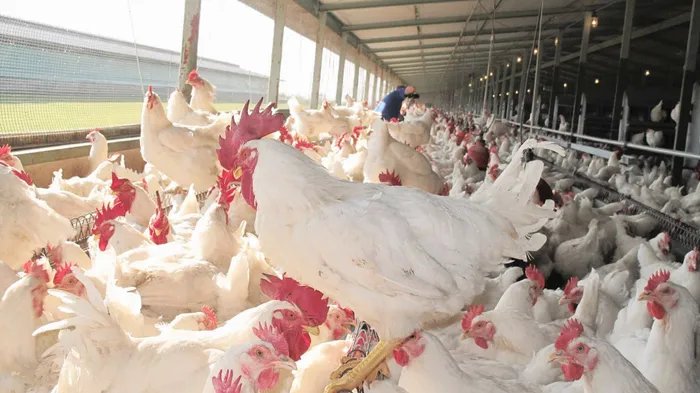SA urged to lift ban on Brazilian deboned meat imports amid food security concerns
AGRICULTURE

A call has been made by Merlog Foods for the Department of Agriculture to allow imports of Mechanically Deboned Meat (MDM) from areas in Brazil that are not affected by avian influenza or bird flu outbreak.
Image: Simphiwe Mbokazi / Independent Newspapers
Merlog Foods has called on the Department of Agriculture to allow the importation of Mechanically Deboned Meat (MDM) from regions in Brazil unaffected by the recent avian influenza outbreak.
This request comes on the heels of the department signing an import agreement with the United States, a move hailed by many industry stakeholders as a crucial step towards enhancing food security in the country.
MDM is widely used in lower-cost protein products required by millions of South Africans for food security such as Vienna sausages and polony, and Brazil is South Africa’s primary source of MDM.
Georg Southey, manager of Merlog Foods, recently expressed his appreciation for the Department's year-long arrangement with the US that facilitates a responsive trade mechanism in the wake of bird flu outbreaks.
“This agreement, which was publicised in a letter released this week by the Department of Agriculture, empowers the US to manage its own internal chicken trade restrictions by State, depending on the presence or absence of bird flu outbreaks," he said.
“The agreement allows local importers of essential affordable protein needed by millions of South Africans to access safe chicken with ease and removes onerous paperwork and delays.
“This sensible approach that the Department of Agriculture has followed with the US should be replicated with all trusted global trading partners. This is especially the case with Brazil, the largest supplier of MDM to South Africa.”
The call for the expedited importation of Brazilian MDM comes amid concerns raised by agricultural experts regarding the current ban on chicken imports from Brazil, despite the bird flu outbreak being confined to a single State.
Wandile Sihlobo, chief economist for the Agricultural Business Chamber of South Africa, echoed these sentiments, remarking that South Africa was heavily reliant on poultry imports.
“This conversation arises on the back of the temporary restrictions on imports of poultry products from Brazil. This ban comes on the back of an outbreak of avian influenza in Brazil,” he said.
“A typical approach when such outbreaks occur is to restrict imports until there is comfort that the risk can be contained. China and the EU are among the countries that restricted poultry products from Brazil before South Africa took action.”
Sihlobo added that in recognition of Brazil’s significant influence on our poultry supply, some food processors have understandably raised concerns about potential supply chain disruptions.
“The intention, I believe, is to urge the South African regulators to soften the restrictions and not apply a broad approach to Brazil. After all, the country is mainly in the state of Rio Grande do Sul. Therefore, it makes sense to call for a regionalised ban and still allow trade to continue.”
Arnold Prinsloo, Eskort CEO, noted that while the agreement with the US was a positive development, it did not cover MDM products. Prinsloo highlighted that MDM from the US tended to be significantly 30-40% more expensive than that from Brazil.
“Should the SA government decide to allow MDM, through regionalisation in Brazil, to be imported, the first MDM containers will only arrive in SA in six weeks with another week for veterinary clearance, before factories could start producing polony, Vienna and Russians,” Prinsloo said.
“Currently, some producers have already run out of MDM stock due to the government dragging its feet on a decision to allow regionalisation in Brazil.”
Francois Rossouw, the CEO of Southern African Agri Initiative, said that they welcome the Department of Agriculture’s pragmatic agreement with the US to allow continued imports of poultry from regions unaffected by avian flu.
Rossouw said that a blanket ban on all imports from Brazil, despite the outbreak being limited to one region, placed enormous pressure on the value chain and risks compounding food insecurity.
“We urge the department to apply the same science-based principles and urgency in their engagements with Brazil, so that imports from safe regions can resume without unnecessary delay,” Rossouw said.
“Our focus must remain on protecting public health while ensuring that working-class families continue to have access to the protein they need.”
BUSINESS REPORT